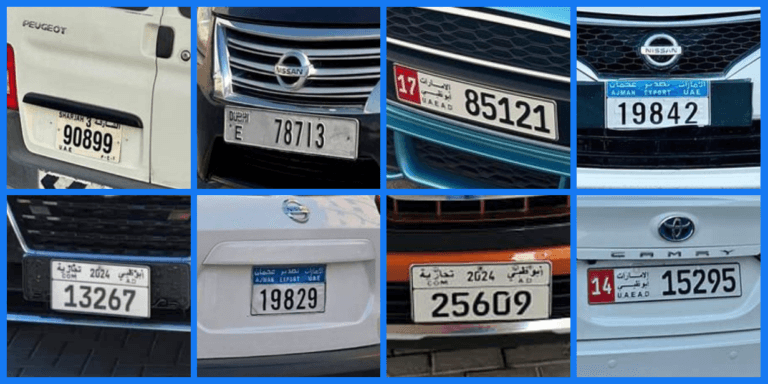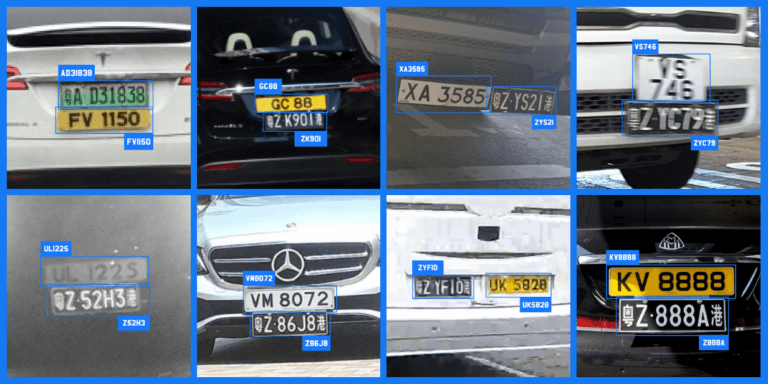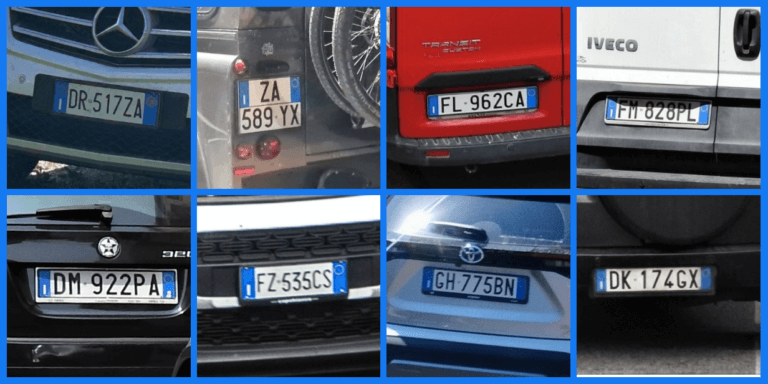The Gulf Cooperation Council (GCC) is a regional intergovernmental political and economic union consisting of six member states located in the Arabian Peninsula and the Persian Gulf. The GCC aims to promote economic cooperation, security, and stability among its member countries namely Bahrain, Kuwait, Oman, Qatar, Saudi Arabia, and the United Arab Emirates (UAE).
GCC states are known for their rapidly growing economies, modern infrastructure, and ambitious development projects. However, alongside their remarkable economic growth and development, these states grapple with significant challenges related to traffic congestion and road safety.
The rapid expansion of urban areas, coupled with increasing vehicle ownership rates, has led to congestion on roads and highways across the region’s major cities. This congestion not only results in longer commute times but also raises concerns about road safety, including high accident rates and fatalities.
As GCC countries continue to modernize and urbanize, addressing these traffic and road safety issues becomes paramount to ensure sustainable development, enhance quality of life, and safeguard the well-being of residents and visitors alike.
How can road congestion and safety be addressed efficiently during this rapid expansion? Today, we’re examining ALPR for GCC as a promising solution.
Opportunity to Save Lives and Improve the Economy
GCC countries have the opportunity to save lives and improve the economy by addressing road safety challenges. As highlighted in a report by Strategy&Middle East, part of the PwC network, and the Fédération Internationale de l’Automobile (FIA), titled “Vision Zero: The journey to safer roads in the Middle East”, achieving key global road safety performance targets could yield substantial social and economic benefits for GCC regions.
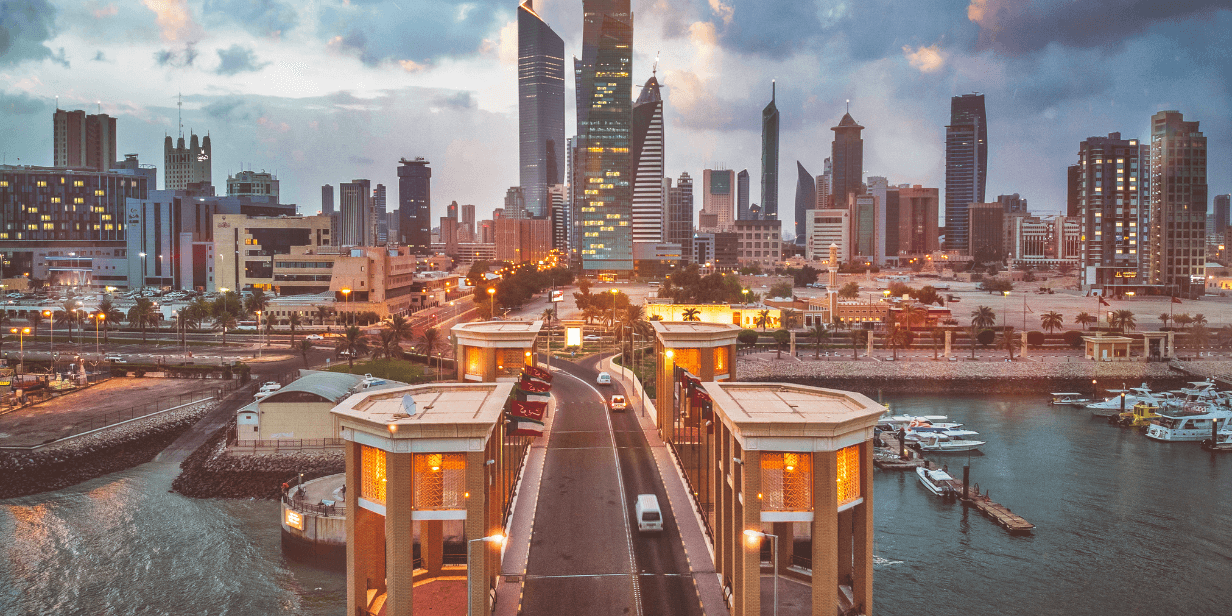
Sunrise in Kuwait City. Source: Canva
Focusing on targets outlined in the UN General Assembly’s Decade of Action for Road Safety, such as ensuring that most travel occurs on safer roads meeting recommended technical standards, GCC countries could save 2,800 lives annually. This reduction in road fatalities not only alleviates the immense human cost of accidents but also carries significant economic implications, as it leads to lower healthcare expenses, increased productivity, and improved quality of life for citizens.
Investing in road safety measures also presents a compelling economic opportunity for GCC countries. The same report emphasizes achieving road safety targets that could stimulate economic growth by around $250 billion over 20 years.
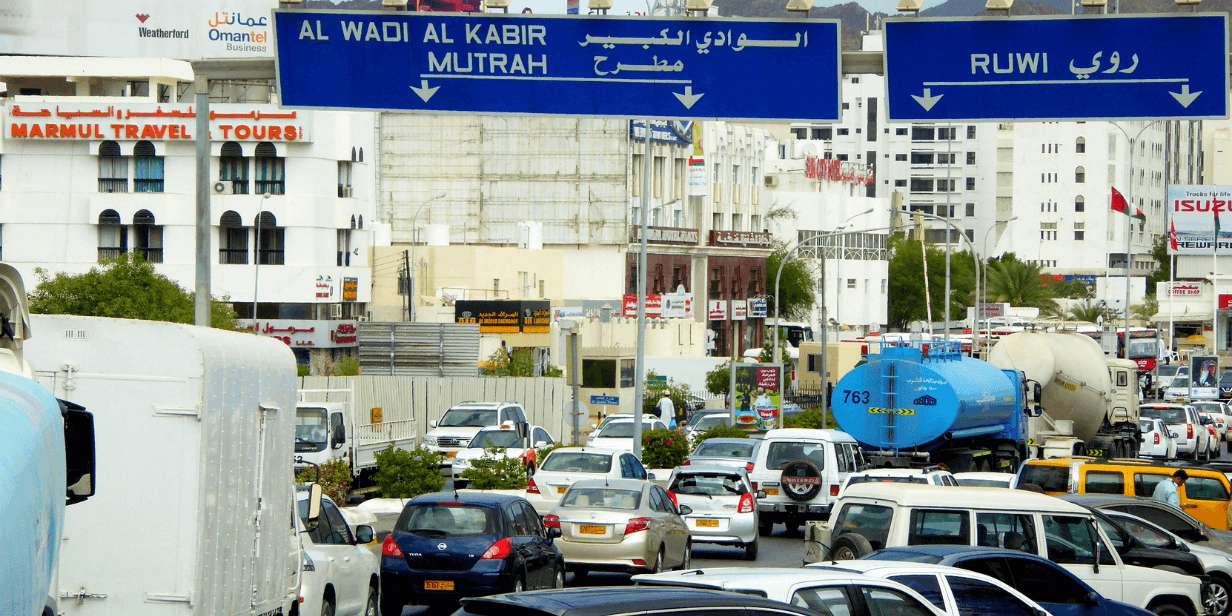
Highway intersection traffic in Muscat, Oman. Source: Canva
Strategies to Improve Road Safety for the GCC
GCC countries can enhance their traffic safety record through a comprehensive strategy grounded in data and empowered by technology. Based on the Vision Zero report, this strategy encompasses five key areas:
1. Improve Infrastructure
Improving infrastructure is a critical strategy for enhancing road safety in GCC countries. This involves incorporating safety standards into the design and operation of roads to minimize risks to motorists and pedestrians. Leveraging technologies like “smart” speed bumps, which automatically adjust based on vehicle speed, and utilizing AI for monitoring road conditions and prioritizing maintenance efforts, can also further enhance road safety measures.
2. Focus on Smart Vehicles
Another crucial aspect of road safety strategy is focusing on smart vehicles. This involves retrofitting existing vehicles with advanced safety features and ensuring compliance with international safety standards. Embracing emerging technologies such as connectivity and automation in vehicles can significantly enhance safety levels on the roads, contributing to a reduction in accidents and fatalities.
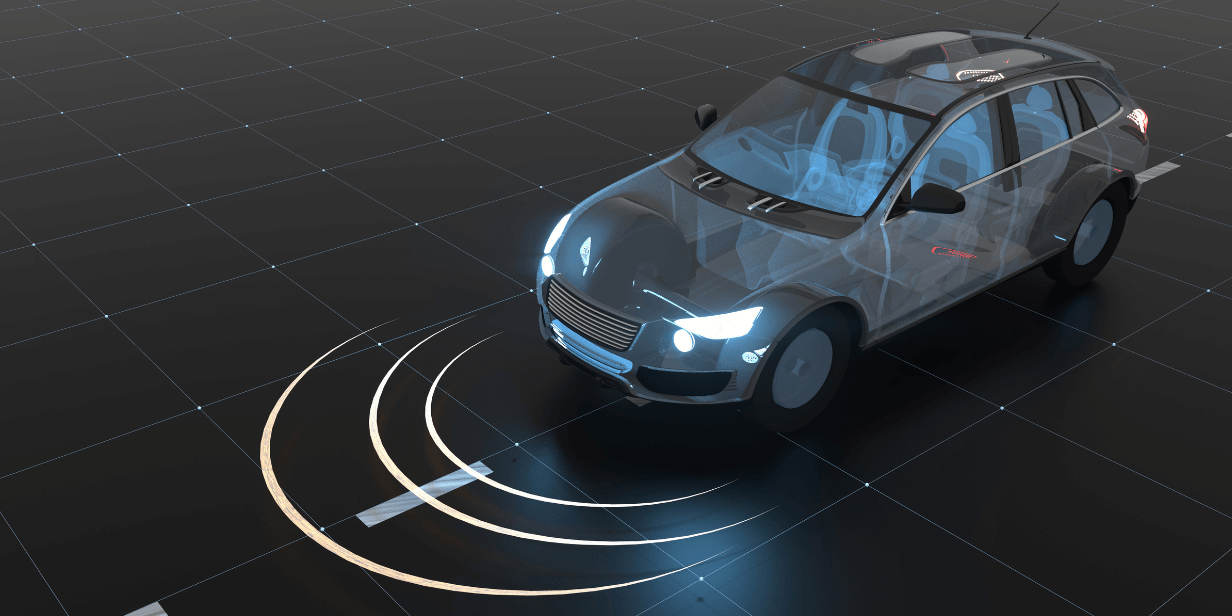
Modern car with advanced safety features. Source: Canva
3. Empower Commuters
Empowering commuters with real-time information is essential for enhancing road safety. Providing access to information about road conditions and traffic flows enables drivers to make informed decisions and navigate hazards effectively. Deploying dynamic message signs, speed indicator displays, and alerts through personal devices further contributes to empowering commuters and promoting safer driving practices.
4. Optimize Traffic Operations
Optimizing traffic operations is key to improving road safety. Implementing smart traffic lights and dynamic speed regulation systems that adjust based on real-time data can help optimize traffic flow and reduce congestion. Utilizing AI-enabled tools for incident prediction and detection enhances incident response capabilities, allowing authorities to address potential safety hazards more efficiently.
5. Ensure Robust Enforcement
Ensuring robust enforcement of traffic laws is crucial for maintaining road safety. Deploying advanced traffic safety programs equipped with technologies like edge computing, radar monitoring, and drones enhances enforcement capabilities, enabling authorities to detect and deter traffic violations effectively. Furthermore, utilizing smart patrol vehicles and AI-enabled CCTV cameras enables efficient monitoring and enforcement of traffic laws and regulations, contributing to safer roads for all users.

Traffic camera capturing license plates. Source: Canva
ALPR for GCC: A Versatile Tool for Implementing Road Safety Strategies
Automatic License Plate Recognition (ALPR) technology presents a versatile solution to address key road safety challenges in GCC countries. Here’s how ALPR for GCC can contribute to implementing and enhancing the strategies listed above:
Optimize Traffic Operations
ALPR systems can optimize traffic operations by providing real-time data on vehicle movements and traffic flow. Through automatically capturing license plate information, ALPR for GCC enables authorities to monitor traffic patterns, identify congestion hotspots, and make informed decisions to improve traffic management and flow.

Busy roads of Riyadh, Saudi Arabia. Source: Canva
ALPR for Saudi Arabia
In Saudi Arabia, for instance, where congestion in cities like Riyadh and Jeddah is a persistent issue, ALPR can help authorities manage traffic more effectively by tracking vehicle movements in real-time. This data can guide traffic management strategies that reduce bottlenecks and improve the overall flow of vehicles.
Ensure Robust Enforcement
ALPR technology plays a key role in enforcing traffic laws and regulations. ALPR systems can identify vehicles that violate traffic laws by scanning license plates, allowing law enforcement agencies to efficiently detect and deter traffic violations. This contributes to safer roads and improved compliance with traffic regulations.
ALPR for Kuwait
For Kuwait, ALPR could be used to enforce the country’s new regulations aimed at curbing reckless driving, such as speeding and the improper use of mobile phones while driving. By automatically detecting violations, ALPR ensures that offenders are penalized promptly, helping to reduce dangerous driving behaviors.
Parking Management
ALPR systems can streamline parking operations by automating entry and exit processes in parking facilities. ALPR engines enable efficient monitoring of parking occupancy, facilitate payment systems, and help enforce parking regulations.

Cars in a parking lot. Source: Canva
ALPR for Bahrain
With significant traffic congestion and parking shortages in densely populated areas like Manama, Bahrain can benefit from ALPR technology to streamline traffic flow in parking lots and garages. ALPR can offer a more efficient solution to these challenges by automating vehicle identification and managing parking availability.
Law Enforcement
ALPR for GCC can aid law enforcement agencies in identifying vehicles associated with criminal activities, such as stolen cars, wanted individuals, or vehicles involved in illicit activities. ALPR systems can automatically scan license plates and cross-reference them with law enforcement databases, enhancing surveillance and investigation capabilities.
ALPR for Oman
In Oman, where road safety is a national priority under Vision 2040, ALPR could assist law enforcement in monitoring traffic violations, including speeding and red-light running, which are common causes of fatal accidents in the country.
Toll Collection
ALPR engines can simplify toll collection on highways and bridges by enabling automatic identification of vehicles passing through toll booths. Instead of manual toll collection, ALPR systems can capture license plate information and deduct toll fees electronically, reducing congestion and improving the efficiency of toll operations.
ALPR for United Arab Emirates (UAE)
This is particularly relevant in the UAE, where automated toll collection systems such as Salik in Dubai already use similar technology. Expanding the use of ALPR for toll collection across other emirates could reduce congestion at toll gates and streamline transportation networks.
Border Control and Security
ALPR for GCC can contribute to border control and security by monitoring vehicles entering and exiting border checkpoints. ALPR systems aid authorities in identifying suspicious vehicles, monitoring cross-border movements, and enhancing border security measures.
ALPR in Qatar
In Qatar, as the country continues to host large international events, ALPR technology can assist in border control and monitoring of vehicles to enhance security measures and prevent illegal activities.
Vehicle Tracking and Management
ALPR technology facilitates vehicle tracking and management for logistics companies, transportation fleets, and vehicle rental services. These systems enable real-time monitoring of vehicle locations, routes, and activities, enhancing operational efficiency and fleet management capabilities.
ALPR in Kuwait
Road networks in Kuwait are growing along with urban expansion, ALPR systems could play a pivotal role in tracking commercial vehicles, reducing bottlenecks, and improving logistics operations.
Using ALPR to Driving Towards a Safer, Smarter Future
The adoption of ALPR for GCC presents a great opportunity for GCC countries to address their pressing challenges of traffic congestion, enhance road safety, and stimulate economic growth. Leveraging data-driven strategies and embracing innovative solutions like ALPR for GCC can pave the way toward safer, more efficient transportation systems that benefit both residents and visitors alike.

Flag of the Gulf Cooperation Council (GCC). Source: Canva
If you’re interested in testing our ALPR for GCC, you can test drive our ALPR engine for free by signing up for an account. For more questions regarding the ALPR for GCC, send us a message anytime.
